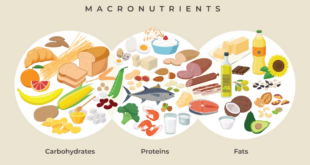
Foods to Help Manage Stress and Improve Mental Health
In today’s fast-paced world, stress and mental health concerns are becoming increasingly common. The pressures of work, school, family, and social obligations often create a whirlwind of anxiety and tension. However, what many people don’t realize is that what we eat can play a significant role in managing stress and promoting better mental health. Food not only nourishes our body but also impacts our mood, energy levels, and brain function. By incorporating the right foods into our diet, we can improve our mental well-being, manage stress, and even enhance cognitive function.

In this article, we will explore foods that help manage stress and improve mental health. From nutrients that promote the production of neurotransmitters to foods that reduce inflammation, these ingredients can help balance your mood and boost your resilience against stress. Additionally, we will provide practical tips on how to incorporate these foods into your daily routine to support mental wellness.
Learn more: 365tastes.com
Understanding the Link Between Food and Mental Health
It’s essential to understand that stress and mental health issues do not only stem from external circumstances; they are also influenced by the foods we consume. The brain requires specific nutrients to function optimally, and deficiencies in certain vitamins, minerals, and fatty acids can lead to mood swings, anxiety, depression, and impaired cognitive function.
Food can influence the production of neurotransmitters like serotonin and dopamine, which are chemicals in the brain that regulate mood and emotional responses. Certain nutrients can also reduce inflammation and oxidative stress in the brain, which are often linked to mental health disorders.
Incorporating the right foods into your diet can help balance your mood, reduce feelings of anxiety and depression, and improve your overall cognitive function.
Key Nutrients That Help Manage Stress and Improve Mental Health
There are several essential nutrients that are directly linked to improving mental health and managing stress. These nutrients can help enhance mood, reduce anxiety, and boost cognitive performance. Let’s take a look at some of the most important ones:
1.Foods to Help Manage Stress and Improve Mental Health – Omega-3 Fatty Acids
Omega-3 fatty acids are essential fats that are not produced by the body, so they must be obtained from food. These fats play a crucial role in brain function and mood regulation. Studies have shown that omega-3s can help reduce symptoms of depression and anxiety by improving brain function and reducing inflammation.
Foods rich in omega-3 fatty acids include:
- Fatty fish: Salmon, mackerel, sardines, and anchovies are all rich in omega-3s.
- Chia seeds: A plant-based source of omega-3s, chia seeds are also high in fiber.
- Flaxseeds: Ground flaxseeds are another excellent source of omega-3s and can be added to smoothies or oatmeal.
- Walnuts: Rich in both omega-3s and antioxidants, walnuts are great for brain health.
- Hemp seeds: A plant-based source of omega-3s, hemp seeds can be added to salads or smoothies.
Incorporating omega-3 fatty acids into your diet can help improve mood stability and reduce feelings of anxiety and stress.
2. Vitamin B Complex
B vitamins, particularly B6, B12, and folate, play a significant role in brain health. They are involved in the production of neurotransmitters such as serotonin and dopamine, which regulate mood, stress levels, and emotional responses. A deficiency in B vitamins can lead to symptoms of anxiety, depression, and fatigue.
Foods rich in B vitamins include:
- Leafy greens: Spinach, kale, and other leafy greens are rich in folate, which helps regulate mood.
- Whole grains: Brown rice, oats, and quinoa provide B vitamins, especially B6 and B12.
- Legumes: Lentils, chickpeas, and black beans are excellent sources of folate.
- Nuts and seeds: Almonds, sunflower seeds, and walnuts are high in vitamin B6.
- Fortified cereals: Some breakfast cereals are fortified with B12, making them a good option for those on plant-based diets.
To reduce stress and improve mental health, aim to include a variety of B vitamin-rich foods in your diet regularly.
3. Foods to Help Manage Stress and Improve Mental Health – Magnesium
Magnesium is a mineral that plays a crucial role in relaxing the nervous system and reducing feelings of anxiety. It helps regulate the stress response by modulating the production of cortisol, a hormone released during stressful situations. Low magnesium levels have been linked to symptoms of anxiety and depression.

Foods rich in magnesium include:
- Dark chocolate: Rich in magnesium and antioxidants, dark chocolate can also help boost mood.
- Leafy greens: Spinach, chard, and kale are excellent sources of magnesium.
- Nuts and seeds: Almonds, cashews, and pumpkin seeds are high in magnesium.
- Legumes: Black beans, lentils, and chickpeas provide magnesium along with fiber.
- Avocados: This creamy fruit is a good source of magnesium, healthy fats, and other essential nutrients.
Magnesium-rich foods are crucial for managing stress and promoting relaxation.
4. Vitamin C
Vitamin C is well-known for its role in supporting the immune system, but it also plays a critical role in reducing the impact of stress. During stressful events, the body’s vitamin C levels are depleted, which can lead to increased feelings of stress and anxiety. Vitamin C is essential for the production of neurotransmitters that help regulate mood and stress levels.
Foods rich in vitamin C include:
- Citrus fruits: Oranges, grapefruits, lemons, and limes are excellent sources of vitamin C.
- Berries: Strawberries, blueberries, and raspberries are rich in antioxidants and vitamin C.
- Bell peppers: These colorful vegetables contain high amounts of vitamin C and can be added to a variety of dishes.
- Tomatoes: A great source of vitamin C, tomatoes can be enjoyed in salads, sauces, or soups.
- Kiwi: High in vitamin C, kiwi is a delicious fruit that can be added to smoothies or eaten on its own.
Vitamin C-rich foods can help replenish the body’s stores of this essential nutrient, reducing stress levels and improving mental clarity.
5.Foods to Help Manage Stress and Improve Mental Health- Probiotics
Gut health has a significant impact on mental health. The gut is often referred to as the “second brain” because it produces a significant portion of the body’s neurotransmitters, including serotonin. Maintaining a healthy balance of gut bacteria can improve mood, reduce anxiety, and enhance cognitive function.
Foods rich in probiotics include:
- Yogurt: Look for probiotic-rich, unsweetened yogurt to support gut health.
- Kefir: A fermented dairy product, kefir is packed with beneficial probiotics.
- Sauerkraut: Fermented cabbage is a great source of probiotics and can be added to salads or sandwiches.
- Kimchi: This Korean fermented vegetable dish is rich in probiotics and adds a spicy kick to meals.
- Miso: A traditional Japanese fermented soybean paste that can be added to soups and stews.
Including probiotics in your diet can support gut health, which in turn can reduce stress and improve mental well-being.
6. Complex Carbohydrates
Carbohydrates, particularly complex carbohydrates, can help manage stress by promoting the production of serotonin in the brain. Unlike simple sugars, complex carbohydrates are broken down slowly, providing a steady release of energy and helping to stabilize blood sugar levels. This prevents the crashes in energy that can exacerbate stress.
Foods rich in complex carbohydrates include:
- Whole grains: Brown rice, oats, quinoa, and barley are excellent sources of complex carbs.
- Sweet potatoes: A great source of slow-burning carbohydrates that can stabilize blood sugar.
- Legumes: Beans, lentils, and peas are high in fiber and complex carbs.
- Vegetables: Root vegetables like carrots and beets provide complex carbs and essential nutrients.
- Fruits: Apples, pears, and berries are fiber-rich fruits that provide complex carbs.
By incorporating more complex carbohydrates into your meals, you can reduce the impact of stress on your body and mind.
How to Incorporate These Stress-Reducing Foods into Your Diet
Start Your Day with a Nutritious Breakfast
Begin your day with a meal that includes a mix of protein, complex carbs, and healthy fats. Try a bowl of oatmeal topped with chia seeds, berries, and a handful of walnuts. Pair it with a cup of green tea for an extra boost of antioxidants and hydration.Snack Smart
Choose snacks that are rich in magnesium, B vitamins, and healthy fats, such as a small handful of almonds, a piece of dark chocolate, or an apple with peanut butter.Include Leafy Greens in Every Meal
Leafy greens like spinach, kale, and chard are not only rich in magnesium but also provide a range of other vitamins and minerals. Add them to salads, smoothies, or stir-fries.Hydrate with Herbal Teas
Drink herbal teas that have calming effects, such as chamomile, peppermint, or lemon balm. These teas can help reduce anxiety and promote relaxation.Enjoy a Balanced Dinner
Prepare a balanced dinner with lean protein, whole grains, and plenty of vegetables. For example, a quinoa bowl with roasted vegetables, tofu, and avocado can provide a nutritious and stress-reducing meal.
Conclusion
Managing stress and improving mental health starts with taking care of your body from the inside out. By incorporating the right foods into your diet, such as omega-3-rich fish, vitamin B12-packed foods, magnesium-rich nuts and seeds, and probiotics, you can support your mental well-being and reduce the negative effects of stress. These nutrient-dense foods can help balance your mood, boost brain function, and promote relaxation.
A well-rounded diet, coupled with healthy lifestyle practices, can significantly improve your mental health, providing a foundation for resilience and emotional stability. So, by making mindful food choices, you are not only nourishing your body but also nourishing your mind.
 Tastes | Live healthy every day
Tastes | Live healthy every day


